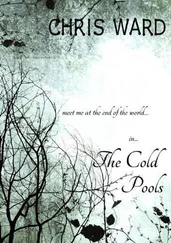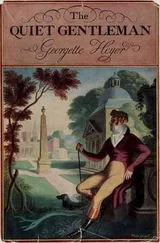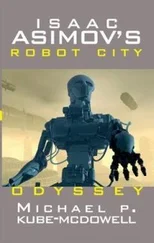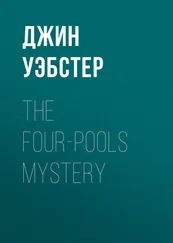But before that happened, he was ambushed by a simple, self-knowing confession:
I have loved one cat, one woman, one child. They’ve all left my life, but they haven’t left my heart. And the cats and the children and the women who hover on the edge of my world can’t get in. That space is already taken .
The cat was Dorian, the big gray who had owned the B Street house until the day he simply failed to return from a winter walk. The woman could only be Sharron, for Christopher could give damning witness to the way his father had kept Deryn at arms length.
And though he tried desperately to find a reason to believe otherwise, Christopher knew in the first moment the words fell under his gaze that the child his father spoke of was Lynn-Anne.
In that moment, hurt and alone, he hated both his father and his sister more than he had known possible.
This time, the kitchen was not far enough away. Christopher retreated outside, to the wooden deck which squared off the curves of the twin domes at the back of the house. Overhead, thin high clouds were making a ghost of the gibbous moon.
It was not that Lynn-Anne was first in her father’s heart which cut so deeply He granted her that as right of precedence. It was the thought that she had won from their father something that Christopher never could, that she had stood in the way of his having any standing at all. It was the realization that his father had knowingly imprisoned him in a losing game.
There was no comfort in knowing that Lynn-Anne’s jealousy had blinded her to her real status, costing her exactly what she blamed Christopher for stealing. There was no joy in the contemplation of how much her defection had cost William McCutcheon. That they, too, had been cheated only made the whole muddle more tragically foolish.
His father had changed after Lynn-Anne left, though at the time Christopher had not seen it. There was proof of the change even in the spotty record of his father’s notebooks. It explained the end of the long letter. It explained the three-year silence, coinciding with the trips east, now seen as attempts to win his aaugnter back. It explained the emotional distance when the entries resumed.
The picture was clear. For his first five or six years, Christopher had been an intimate part of his father’s life. But after that time he was never more than an important part. And he had spent the succeeding years trying to earn back something he had once had, without ever grasping exactly what was missing—or why it had been taken away.
So much of Christopher’s history with his father finally made sense. His own eternal sense of inadequacy. The paradox of his father’s studied indifference and his obsession for control—the endless auditions for an approval he would never give. Even his father’s curious relationship with Deryn, by his choice alone less than it could have been, an arrangement rather than a marriage.
Numbly, he wondered—was this the whole point of the exercise, for him to learn that his father did not love him? If so, then it was a cowardly act, and a cruel legacy. And there was no reason to mourn such a man.
The high clouds were blowing off, and scattered windows of star-dotted sky were starting to open. Christopher sat on the railing, back resting against the wall, his arms crossed tightly across his chest, looking up into the fragmented sky for pieces of a pattern he could recognize.
It struck him then that his father had left him neither a gift nor a message, but a final test. See what you can do with these , his father was saying. He had bequeathed Christopher the task of assembling into a picture the thoughts and moments captured in the archives, and the harder task of drawing out the meaning. What more fitting legacy could there be, considering his profession? Christopher had performed the same synthesis a hundred times on the lives of strangers.
There was something of love in the challenge, as there had always been. Never the unconditional embrace, never the final security, but always something of love, nonetheless. His father had tried to love him without ever making himself vulnerable. And because his father did not trust him, he had tried to control him.
Was still trying. Read it all or not at all . Why? Because his father had feared that Christopher would stop before seeing everything of importance, would draw the wrong conclusion or be led to too harsh a judgment. The same manipulation as always, coming from an even colder, safer distance.
The temptation to answer with rebellion was strong. But such a rebellion now would be an empty, self-defeating gesture. William McCutcheon was gone, immunized by death against Christopher’s venom. And there were seventeen volumes left.
There has to be something more, he thought as he went back inside the house, something meant for him. There has to be some reason for the exercise beyond destroying the last illusions of a twenty-seven-year-old child.
These fissured cliffs, grading from brown to white to red, appear to me as a great wound carved across her face, as the wrinkled features of the crone. How could such feeble rivers cut such canyons? The wind is a ghost, water a chimera. The element that escapes our eyes is time — time in such measure that only the earth herself is witness .
Who remembers these tablelands rising from a dying sea? Only Gaea. Who recalls the march of life preserved in these canyon walls? Only those to whom the gift has been passed, whose substance preserves the fragile past in a precarious present. We have left our mark here as surely as have wind and water. My heart beats in rhythm with the land. I am its eyes, shaped from the clay and touched with the spark.
There were dozens more like it, and a yawning, eye-weary Christopher hardly knew what to make of them. Prayerful poetic reveries to the experience of nature seemed hardly to belong to his picture of William McCutcheon.
Christopher knew that his father had treasured the privacy that the forest estate assured him, that he had a speculator’s eye for land. But these essays went far beyond that. Embodied in them was a whole world of thought into which Christopher had only had rare glimpses. And, though it was not easy to accept, there was as much emotion in such passages as there had been in his father’s letter. Perhaps more.
The only way he could make sense of them was to think of them as coming from Jeremiah. But even that was an imperfect answer, because it merely confirmed the fact without explaining it. The man who had written, “These switchback mountain streams tumble through crazy folded hills growing ever wider, ever calmer, as though milked of the energy needed to sustain the conquering fecundity of the forest,” could have written any of Jeremiah’s speeches on the price of the Diaspora.
Indeed, there were any number of entries that read like sketches for such a speech, echoing the metaphor of desiccation:
In whose eyes is the butterfly more beautiful than the chrysalis, a glittering jade jewel flecked with gold? The price of the transformation is destruction, the transaction final and absolute. The beauty that was vanishes, consumed as the fuel for flight and freedom. In just this way, an unchecked hunger to expand will drain the life from the Earth, sacrificing this jade and azure jewel for that poor prize.
But was there a way to marry Dryke’s Jeremiah to Christopher’s father, and make the two merge into a single image?
He sat back in the chair, hands folded in his lap. “All right, Lila. I give up. What’s the secret?”
“Excuse me, Christopher?”
“Five down, a nine-letter word meaning ‘mercy.’ I want a peek at the answers in the back of the book.”
“I know no such word.”
Читать дальше
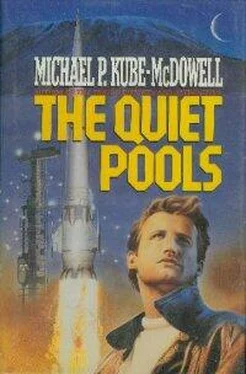
![Nick Cracknell - The Quiet Apocalypse [= Island Zero]](/books/28041/nick-cracknell-the-quiet-apocalypse-island-zero-thumb.webp)



